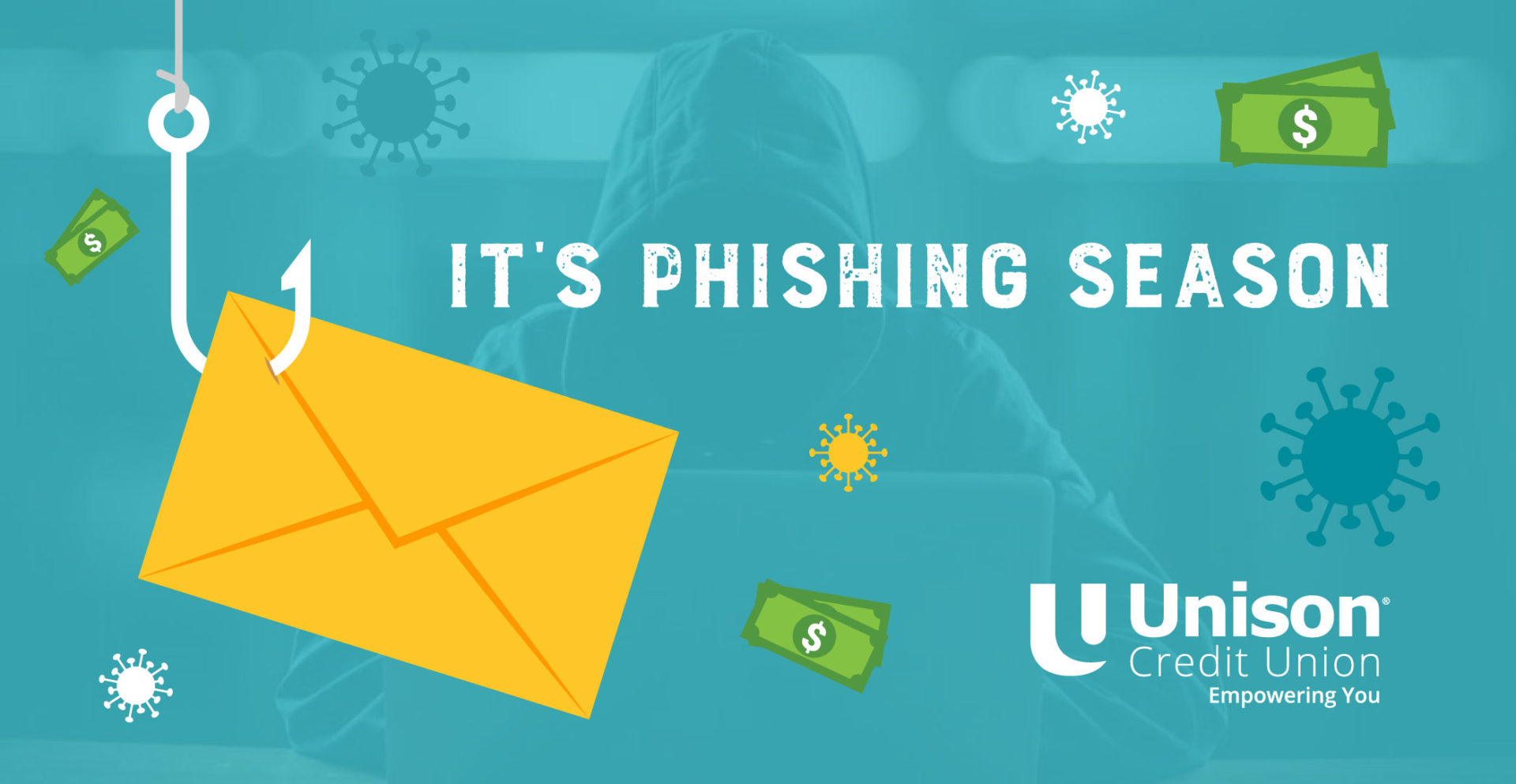It’s Phishing Season
April 22, 2020

Fishing season in Wisconsin usually opens the first weekend in May. Whether using live bait or favorite fishing lures, opening day is a sure sign of Spring and is highly anticipated by fishing enthusiasts.
Phishing (pronounced the same as fishing) season lasts all year long, especially with the current coronavirus precautions in place. Phishing is when scammers use bogus emails, text messages and even fake websites to trick you into giving them personal information like passwords, account numbers or your Social Security Number so they can tap into your financial accounts.
We’re communicating via email and text more than ever as part of social distancing. At the same time, fraudsters are hard at work, using all the tools in their phishing tackle boxes to set the hook, reel you in and steal your info.
According to a recent report from the FBI’s Internet Crime Complaint Center (IC3), they received nearly 1,300 complaints and recorded more than $3.5 billion in losses to individual and business victims in 2019.
The good news is there are some telltale signs to help you spot phishing emails or texts:
- Scammers usually imitate a company you are familiar with or have done business with, such as a trusted credit union or bank, credit card company, an area retailer, online ordering website, IRS, etc.
- Bogus texts or emails may include a reason or reward for opening them, such as:
- Suggesting that there’s been suspicious account activity or log-in attempts
- Inform you that there’s a problem with your account or payment information
- Want you to confirm some personal information
- Send a fake invoice
- Ask you to click on a link to make a payment
- Say you’re eligible to register for a government refund
- Feature a coupon for free stuff
Watch for:
- URLs and email addresses that don’t match the supposed company’s or sender’s name
- Misspellings, grammatical errors or sentences that don’t make sense in the message
- Logos within the message that look fuzzy or unusually small
The Federal Trade Commission (FTC) currently reports an uptick in COVID-19 scams, including emails, text messages and even letters with phony offers for things like vaccines, test kits, cures or treatments, air filters systems and more. If you or someone you know receives one of these fake offers, don’t respond. For more information about recognizing, avoiding and reporting phishing scams, visit the FTC website.
If you believe you’ve fallen victim to a scam or if you think a scammer has your important information like your Social Security Number or account information, go to IdentityTheft.gov to learn more about next steps you can take.
Along with being careful about what types of texts and emails you open and respond to, the FTC also recommends these four steps to protect yourself from phishing:
- Protect your computer by using security software
- Protect your mobile phone by setting software to update automatically
- Protect your accounts by using multi-factor authentication
- Protect your data by backing it up
Someday the coronavirus pandemic will be a page in history. But for now, we’re all adapting to the new normal, including the need to be more aware of scammers and their phishing ways.
Remember, we’re in this together. And we’re always here for our Unison members, so feel free to contact us by email or give us a call at (920) 766-6000 with any questions you may have.

